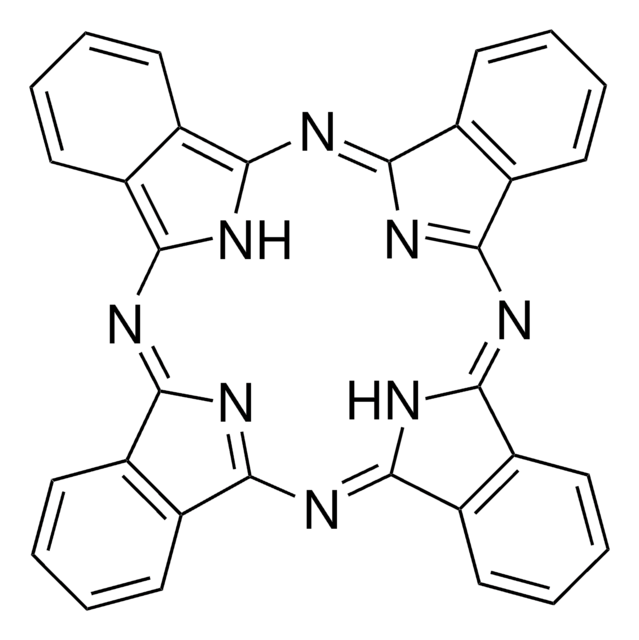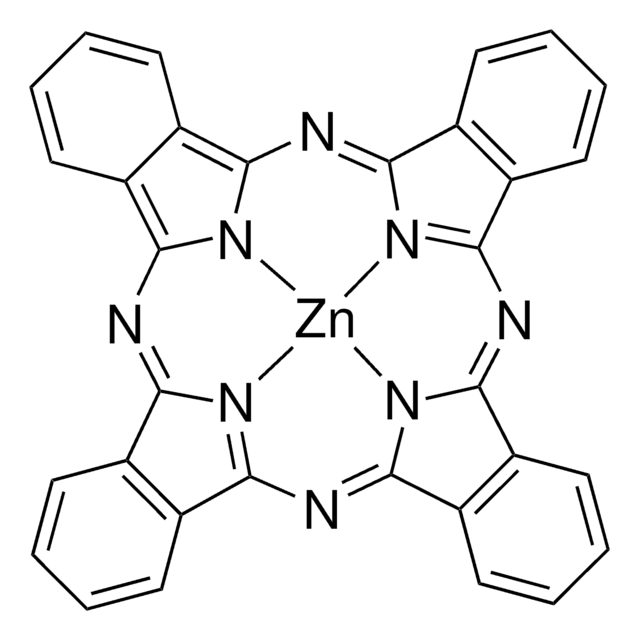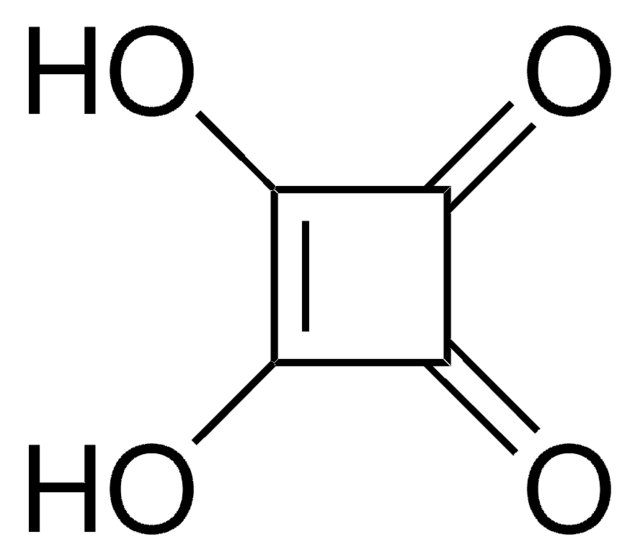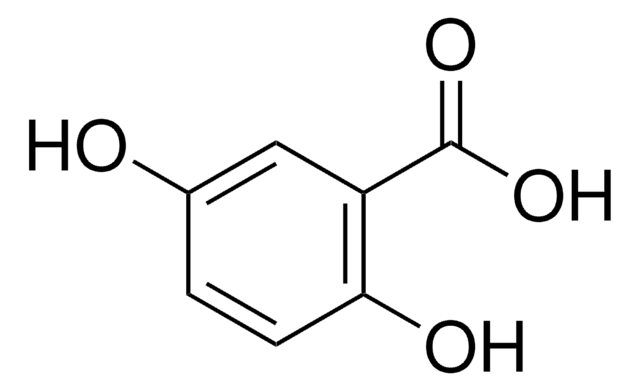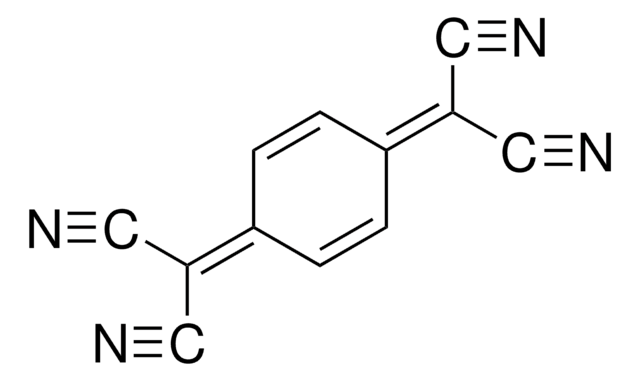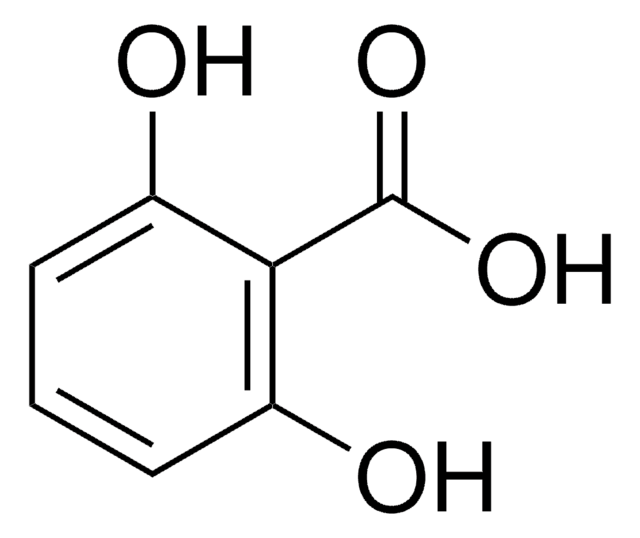149063
1,3-Bis[4-(dimethylamino)phenyl]-2,4-dihydroxycyclobutenediylium dihydroxide, bis(inner salt)
Dye content 90 %
Synonyme(s) :
Squarylium dye III
About This Item
Produits recommandés
Forme
solid
Composition
Dye content, 90%
Pf
>300 °C (lit.)
λmax
625 nm
Chaîne SMILES
CN(C)c1ccc(cc1)C2=C([O-])C(=C3/C=CC(\C=C3)=[N+](\C)C)\C2=O
InChI
1S/C20H20N2O2/c1-21(2)15-9-5-13(6-10-15)17-19(23)18(20(17)24)14-7-11-16(12-8-14)22(3)4/h5-12H,1-4H3
Clé InChI
HERJDZWHZQOZLU-UHFFFAOYSA-N
Description générale
Mention d'avertissement
Warning
Mentions de danger
Conseils de prudence
Classification des risques
Eye Irrit. 2 - Skin Irrit. 2 - STOT SE 3
Organes cibles
Respiratory system
Code de la classe de stockage
11 - Combustible Solids
Classe de danger pour l'eau (WGK)
WGK 3
Point d'éclair (°F)
Not applicable
Point d'éclair (°C)
Not applicable
Équipement de protection individuelle
dust mask type N95 (US), Eyeshields, Gloves
Faites votre choix parmi les versions les plus récentes :
Déjà en possession de ce produit ?
Retrouvez la documentation relative aux produits que vous avez récemment achetés dans la Bibliothèque de documents.
Articles
Dye-sensitized solar cells (DSCs) are 3rd generation solar cells combining the promise of high efficiency with low production costs.
While dye sensitization as the basis for color photography has been accepted for a very long time,1 attempts to use this principle for the conversion of solar light to electricity generally had resulted only in very low photocurrents, below 100 nA/cm
Notre équipe de scientifiques dispose d'une expérience dans tous les secteurs de la recherche, notamment en sciences de la vie, science des matériaux, synthèse chimique, chromatographie, analyse et dans de nombreux autres domaines..
Contacter notre Service technique![2,4-Bis[4-(N,N-diphenylamino)-2,6-dihydroxyphenyl]squaraine 98%](/deepweb/assets/sigmaaldrich/product/structures/303/054/d8b9c845-3623-4f5a-8a30-ab6731034171/640/d8b9c845-3623-4f5a-8a30-ab6731034171.png)
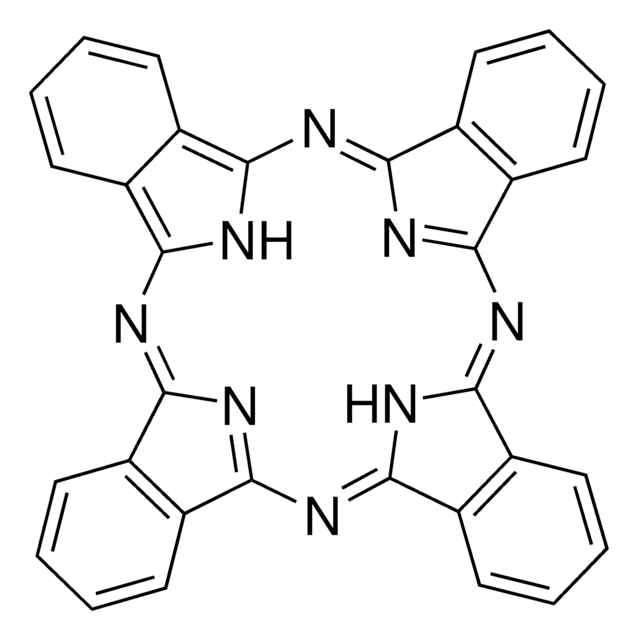
![trans-4-[4-(Dimethylamino)styryl]-1-methylpyridinium iodide Dye content 98 %](/deepweb/assets/sigmaaldrich/product/structures/416/722/5d59b6c3-5f2d-4396-a721-5cb82ba7038c/640/5d59b6c3-5f2d-4396-a721-5cb82ba7038c.png)

